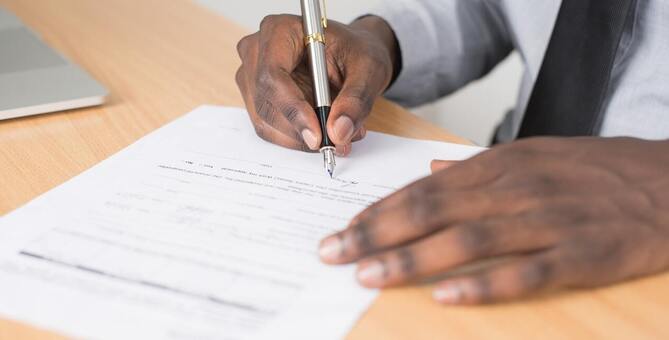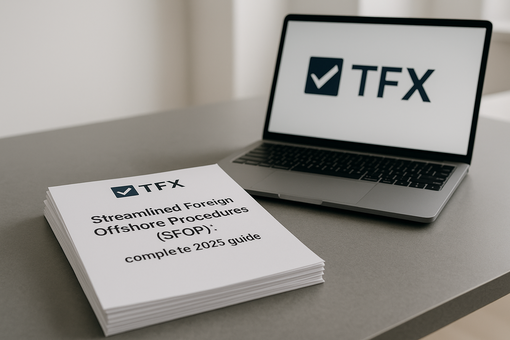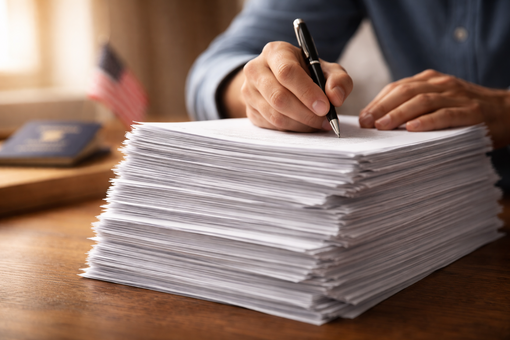Buying property in Australia as a foreigner: what you need to know

Australia’s booming economy, and world-class lifestyle makes it a magnet for foreign investors – and many are drawn to buy property in Australia.
As of 2024–2025, an estimated 100,000 US expats have already made Australia their new home – and others are exploring how to join them.
Can foreigners buy Australian property?
Yes – Foreigners can buy property in Australia – but with rules, only after receiving approval from the Foreign Investment Revenue Board (FIRB). There are restrictions on what types of properties foreigners can purchase. Overseas buyers can invest in Australian real estate, though they must navigate specific legal requirements and obtain approvals.
Who qualifies as a foreign investor?
In Australia, a "foreign person" is someone not ordinarily resident in the country. This includes non-citizens, temporary visa holders, and certain corporations and trusts. Understanding this status is crucial, as it determines the need for Foreign Investment Review Board (FIRB) approval when purchasing property.
- Individuals not ordinarily resident in Australia.
- Corporations where a foreign person holds a substantial interest.
- Trustees of trusts with foreign beneficiaries holding substantial interests.
- Foreign governments or their entities.
- Limited partnerships with significant foreign ownership.
- Any other person as prescribed by regulations.
What "foreign status" means in this context
In Australia, foreign status isn’t just about citizenship – it’s about where you live, how long you’ve stayed, and who controls your assets. These definitions determine whether overseas buyers fall under foreign investment rules when entering Australia’s real estate market.
NOTE! Purchasing jointly with an Australian spouse usually bypasses the FIRB approval requirement. When approval is needed, fees scale with property value – topping $100,000 on luxury deals – and decisions generally arrive within 30 days.
Where can non-residents invest?
For many non-residents eyeing Australia’s property market, knowing what they’re allowed to buy is half the battle. The rules are strict – but clear – and designed to balance foreign investment with local housing needs.
-
New dwellings offer the clearest path
Non-residents can easily enter the Australian market by buying brand-new properties. These homes have never been sold or occupied – ensuring foreign investment adds to the housing supply. -
Vacant land comes with strict deadlines
Non-citizens may buy empty land – but construction of a home must begin within four years. This rule ensures buyers genuinely contribute to Australia’s housing development. -
Off-the-plan properties provide flexibility
Non-residents often find off-the-plan purchases appealing – securing a property before it's fully built. This allows many Americans buy property in Australia without competing for limited existing homes. -
Restrictions tighten around existing dwellings
Purchasing property in Australia that’s already built is heavily restricted for non-residents. Only redevelopment projects that add new housing stock may receive approval – and even then, the conditions are strict for every non-citizen buyer.

Buy property in Australia as a foreigner: cost breakdown
For many US citizens exploring life abroad, Australia offers vibrant cities and strong economic opportunities. But buying real estate as a foreigner or as a non-resident involves additional costs. Let’s break them down.
FIRB application fees
Foreigners must secure approval from the Foreign Investment Review Board (FIRB), with fees based on property value (2024):
| Property value | FIRB application fee |
|---|---|
| < AUD 75,000 | AUD 4,200 |
| ≤ AUD 1 million | AUD 14,100 |
| ≤ AUD 2 million | AUD 28,200 |
| ≤ AUD 3 million | AUD 56,400 |
| ≤ AUD 4 million | AUD 84,600 |
| ≤ AUD 5 million | AUD 112,800 |
Foreigners aiming for luxury real estate will see fees climb even higher. The FIRB process is not just a formality – failure to obtain approval can result in steep fines or even criminal charges.
Legal and conveyancing costs
Expat buyers should budget AUD 2,000 to AUD 5,000 for legal services covering contracts, title checks, and FIRB compliance. Translation fees apply if needed.
Property purchase stamp duty
Foreigners pay extra stamp duty:
- New South Wales: 8% surcharge
- Victoria: 8% surcharge
- Queensland: 7% surcharge
For an AUD 1 million Sydney property, foreign buyers may face around AUD 80,000 extra, aside the AUD 40,000 in standard stamp duty.
Ongoing property taxes
Ongoing taxes for foreigners include:
- Land Tax (state-dependent)
- Annual Vacancy Fee (if vacant over 183 days)
- Sales over AUD 750,000 trigger 12.5% withholding tax, and many more.
Buying real estate in Australia as a foreigner or US citizen is achievable – but careful planning is key. FIRB fees, high deposits, stamp duties, and ongoing taxes add up fast.
Australia’s empty home penalty explained
Can foreigners buy property in Australia? Yes – but they face extra rules like the annual vacancy fee. It applies if you’re buying a house that stays empty for more than six months in a year. The fee equals your FIRB application charge – making unused property expensive to hold. If you buy land, you’ll also need to report yearly to the Australian Taxation Office to confirm occupancy status.
Getting a mortgage in Australia
Financing property purchases in Australia as a foreigner is challenging due to strict lending criteria and cautious assessment of foreign income. Lenders require extensive documentation and apply conservative evaluations to minimize risk.
Specialist mortgage brokers can be invaluable in navigating this complex landscape. They understand lender policies, foreign income assessments, and can match you with institutions still actively offering loans to non-resident buyers.
Minimum deposit and lending criteria
Foreign property buyers should prepare for tighter financial expectations. Here’s what to expect:
- Deposit requirements: Most lenders require foreign investors to provide a minimum deposit of 20% – 30% of the property’s value.
- Loan-to-Value Ratio (LVR): Lenders use the LVR to measure loan risk. Many limit LVR to 60% – 70% for foreign applicants, which means larger upfront cash contributions.
- Income verification: Lenders may discount your foreign income, accepting only 50% – 80% of documented earnings, depending on the currency stability and employment type.
- Documentation: Applicants must provide comprehensive, translated financial documents, including tax returns, employment contracts, and proof of funds.
- Visa status: Temporary residents with valid visas may be eligible for slightly more favorable terms, especially if applying jointly with a citizen or permanent resident.
Which is why for an AUD 800,000 property, a foreigner may need AUD 160,000 to AUD 240,000 upfront.
Pros and cons of using overseas financing
| Advantages | Disadvantages |
|---|---|
| Leverage foreign banking relationships to potentially secure better rates | Yet, local Australian lenders may not honor those overseas relationships, forcing you into limited domestic options |
| May benefit from favorable currency exchange rates at the time of securing the loan | However, ongoing currency fluctuations can dramatically increase repayment costs over time |
| Access to flexible cross-border financing products from your home country | But navigating international legal and tax implications can make the process far more complex |
Using overseas financing for purchasing property in Australia can offer strategic benefits for globally mobile investors. However, foreign property loans come with heightened complexity that requires careful financial and legal planning.
Tax implications for foreign investors
With its stable economy, stunning landscapes, and high quality of life, Australia is a top destination for expats. But when it comes to purchasing a land or property, foreign investors face a unique set of tax obligations that can quickly become complex.
- Capital Gains Tax (CGT) – When you sell property in Australia, any profit is subject to capital gains tax. Foreign investors are not eligible for the main residence exemption and must pay CGT on the full gain.
- Rental income tax – Income earned from renting out property in Australia is taxable. Expenses related to the property can be deducted, but the net rental income must be reported on an Australian tax return.
- Withholding tax rules – For property sales over AUD 750,000, buyers must withhold 12.5% of the purchase price and remit it to the Australian Taxation Office. Sellers can claim a credit for this amount when filing their tax return.
US–Australia tax treaty considerations
For American citizens, the US–Australia tax treaty provides important guidance on which country has taxing rights over various types of income. The treaty helps prevent double taxation, but US citizens must still report their foreign properties, rental income, and capital gains on US tax returns.
In addition, offshore accounts exceeding $10,000 trigger FBAR reporting, while larger foreign assets require FATCA Form 8938. Key deadlines include April 15, with an automatic extension to June 16 for Americans living abroad in 2025.
Further extensions to October 15 are available through our free tax extension service. Taxes owed remain due in April to avoid interest.
We make tax compliance effortless
Purchasing property in Australia opens doors to an exciting expat lifestyle – but managing both tax obligations can feel daunting.
Our specialists at Taxes for Expats ensure you meet every US tax compliance, minimize your IRS exposure, and enjoy your Australian property investment with complete confidence.

FAQ
Foreign buyers cannot purchase property near military bases or critical infrastructure zones without special government clearance, as national security laws apply.
If FIRB approval expires before the purchase completes, buyers must reapply or request an extension – otherwise, settlement cannot legally proceed.
Yes – the Treasurer can invoke a ten-year call-in power and reassess any foreign purchase that later raises national-security concerns.
Practically no – contracts must settle in Australian dollars, so crypto is converted to AUD first even when a broker facilitates the deal.
Yes – you can withdraw or borrow against a 401(k), but the funds lose US tax advantages and still count as early-distribution income unless you meet an exception.



